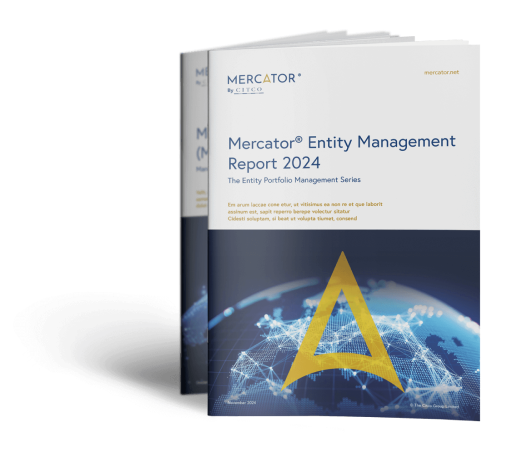The information contained in this document is marketing material and for informational purposes only. The information contained in this document is presented without any warranty or representation as to its accuracy or completeness and all implied representations or warranties of any kind are hereby disclaimed. Recipients of this document, whether clients or otherwise, should not act or refrain from acting on the basis of any information included in this document without seeking appropriate professional advice. The provision of the information contained in this document does not establish any express or implied duty or obligation between Citco and any recipient and neither Citco nor any of its shareholders, members, directors, principals or personnel shall be responsible or liable for results arising from the use or reliance of the information contained in this document including, without limitation, any loss (whether direct, indirect, in contract, tort or otherwise) arising from any decision made or action taken by any party in reliance upon the information contained in this document. © The Citco Group Limited, December 2024.
Navigating Entity Management in India
As one of the world’s fastest growing economies, India offers a wealth of opportunities for international businesses. Historically, India’s regulatory environment was considered as one of the most complex and challenging jurisdictions to operate in.
Whilst India is still a large and complex market that requires careful navigation, the Government’s commitment to digitalization and transparency is steadily transforming it into an attractive and business-friendly market for foreign companies.
Digitalization Drive
The Indian Government’s ‘Ease of Doing Business’ initiative aims to simplify and digitize various business processes, reducing paperwork and administrative hurdles. As part of this initiative, the Ministry of Corporate Affairs has launched MCA 21 Version 3.0 – a portal for online registration and e-filing. This has significantly expedited company registrations and compliance procedures such as filing of financial statements, and annual returns.
Board meetings can also be held virtually, provided the audio-visual methods are capable of recording and recognizing the participation of the directors and of recording and storing the proceedings of meetings, with the data and time.
The Ministry has also recently issued a dematerialization mandate for all private companies (other than a small company). This new requirement alters securities from a physical to digital form, allowing smooth, cost-effective, and fool-proof disposal of shares. Starting from the 30th of September 2024, every private company (other than a small company) shall ensure that all its shares are in dematerialized form and any new issuance of private company securities shall solely be undertaken in dematerialised form.
While dematerialisation of shares is not an entirely new phenomenon in Indian law, it marks a new era in the governance of private companies. Holding shares in dematerialized form enables private companies with the ability to carry out transactions electronically. Meaning a simple, convenient, secure and paperless environment for company operations.
Regulatory Updates
There have been recent regulatory developments which significantly impact the risk landscape for business in India. The Ministry of Finance’s amendments to the Foreign Exchange Management Non-Debt Rules in January 2024 allows Indian public companies to list equity shares on international exchanges, unlocking global fundraising opportunities. Simultaneously, the MCA introduced Companies Overseas Listing Rules, specifying provisions for overseas listing eligibility.
Additionally, Limited Liability Partnerships (LLPs) face regulatory changes with new requirements to maintain a Register of Partners and file Declarations of Beneficial Interest. A circular dated the 7th of February 2024, provides relief, allowing LLPs to file required forms. These updates emphasize the need for proactive compliance.
Risk of Non-Compliance
In India, non-compliance poses significant risks with substantial penalties and legal repercussions. Failure to adhere to key regulations can result in hefty fines and even imprisonment. The government’s stringent enforcement underscores the critical importance for business to remain well-informed and compliant, mitigating potential risks and ensuring legal adherence.
3 Key Considerations for Entity Management in India
1. Differing local compliance requirements
There are 28 states and eight federally administered union territories in India. It is important to be aware that each state may have differing specific compliance requirements and local nuances to navigate.
2. Documentation precision
In sectors like pharmaceuticals, shipping, banking and financial services, precise documentation is paramount for compliance and product approvals. Non-fulfilment of these requirements may lead to delays or regulatory issues.
3. Proactive Compliance
India’s regulatory landscape is constantly evolving, with new requirements and deadlines to keep on top of. Regularly updating internal processes ensures proactive compliance and alignment with evolving corporate laws, reduces the risk of penalties associated with non-compliance.
Pratheep Balu Anbalagan
Senior Legal Officer, Mercator by Citco, Citco Mercator, UAB
Mantas Kelecius
Legal Officer, Mercator by Citco, Citco Mercator, UAB

